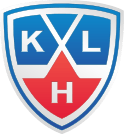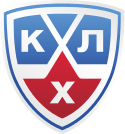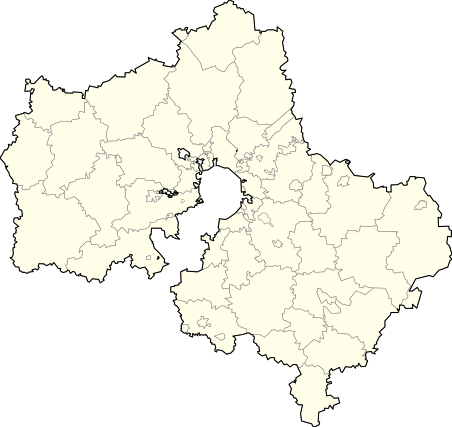Kontinental Hockey League
|
Current season, competition or edition: | |
 | |
| Formerly | Russian Superleague |
|---|---|
| Sport | Ice hockey |
| Founded | 2008 |
| President | Dmitry Chernyshenko |
| Motto | Хоккей – наша игра! Khokkey – nasha igra! Jääkiekko on meidän peli! (Hockey is our game!)[1] |
| No. of teams | 29 |
| Country |
|
| Most recent champion(s) | Metallurg Magnitogorsk (2nd title) |
| Most titles |
Ak Bars Kazan (2) Metallurg Magnitogorsk (2) Dynamo Moscow (2) |
| TV partner(s) |
List of TV stations
|
| Related competitions |
Supreme Hockey League (VHL) Hockey Premier League (HPL) (From 16/17[6]) Junior Hockey League (MHL) |
| Official website | en.KHL.ru |
The Kontinental Hockey League (KHL) (Russian: Континентальная хоккейная лига (КХЛ), Kontinental'naya hokkeynaya liga) is an international professional ice hockey league founded in 2008. It comprises 29 member clubs based in Belarus, China, Croatia, Finland, Kazakhstan, Latvia, Russia, and Slovakia and it is planned to expand to more countries. It is widely considered to be the premier professional ice hockey league in Europe and Asia, and second in the world behind the NHL.[7][8]
The Gagarin Cup is awarded annually to the league playoff champion at the end of each season. The title of Champion of Russia is given to the highest ranked Russian team.[9]
History
Establishment
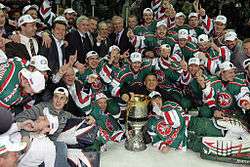
The league formed from the Russian Superleague (RSL) and the champion of the 2007–08 season of the second division, with 24 teams: 21 from Russia and one each from Belarus, Latvia, and Kazakhstan. The teams were divided into four divisions, based on the performance in previous seasons.
The start of the fourth season was overshadowed by the Yaroslavl air disaster on 7 September 2011 in which almost all members of the team Lokomotiv Yaroslavl lost their lives shortly after take-off for their flight to their season opening game in Minsk. The Opening Cup game in Ufa, which was already under way when news of the disaster arrived, was suspended. In memory of the disaster, 7 September remains a day of mourning on which no KHL regular season games are held.[10]
Team changes
In the 2009–10 season, Avtomobilist Yekaterinburg joined the KHL and Khimik Voskresensk was transferred to a lower league. Next season, HC Yugra joined the league.
After several attempts by teams from Central Europe and Scandinavia to join the KHL, expansion beyond the borders of the former Soviet Union was finally realized in 2011. Lev Poprad, a newly founded team based in Poprad, Slovakia was admitted to the league. But after only one season, Lev was replaced by a team of the same name, Lev Praha, from Prague, Czech Republic, while Slovan Bratislava from Slovakia and Ukraine's Donbass joined the KHL as expansion teams.[11] Lev and Slovan qualified for the playoffs in their first KHL season.
In 2013, Medveščak from Croatia and Russian Admiral Vladivostok joined the league, thus expanding the league even further.[12] The league comprised 28 teams during the 2013–14 season, of which 21 are based in Russia and 7 more are located in the other countries.
In 2014, Finnish team Jokerit from Helsinki, Lada Togliatti (which previously played in the league), and newly created team HC Sochi joined the league.[13] However, HC Donbass is not playing in the league this season, due to the political instability in Ukraine, but intends to rejoin later.[14] Two other teams, Lev Praha and Spartak Moscow, also withdrew from the 2014–2015 season due to financial problems.[15][16]
Prior to the 2015–16 season, Atlant Moscow Oblast withdrew from the KHL, while Spartak Moscow returned.[17]
The Chinese club HC Kunlun Red Star were admitted for the 2016–17 season.[18]
Season structure
Since 2009, the league is divided into East and West conferences. In the current season, each conference includes 14 teams divided into two divisions, 7 teams per division. In this season, each team played every other team once at home and once on the road, giving a total of 54 games (27 at home, 27 on the road), plus 6 additional games (3 at home, 3 on the road) played by each team against rival clubs from its own conference. Thus, each team played a total of 60 games in the regular season.[19]
The eight top-ranked teams in each conference receive playoff berths. Within each conference quarterfinals, semifinals and finals are played before the conference winners play against each other for the Gagarin Cup. The division winners are seeded first and second in their conference, based on their regular season record. All playoff rounds are played as best-of-seven series. In each round, the top seeded remaining team is paired with the lowest seeded team etc.[20]
In the 2012–13 season, the Nadezhda Cup (Cup of Hope) was introduced, a consolation tournament for the teams who did not qualify for the playoffs. The winning team in the tournament wins the first overall pick in the KHL Junior Draft. The tournament is intended to extend the season and help maintain interest in hockey in the cities of these teams, and help players of national teams prepare for upcoming World Championship.[21]
Teams
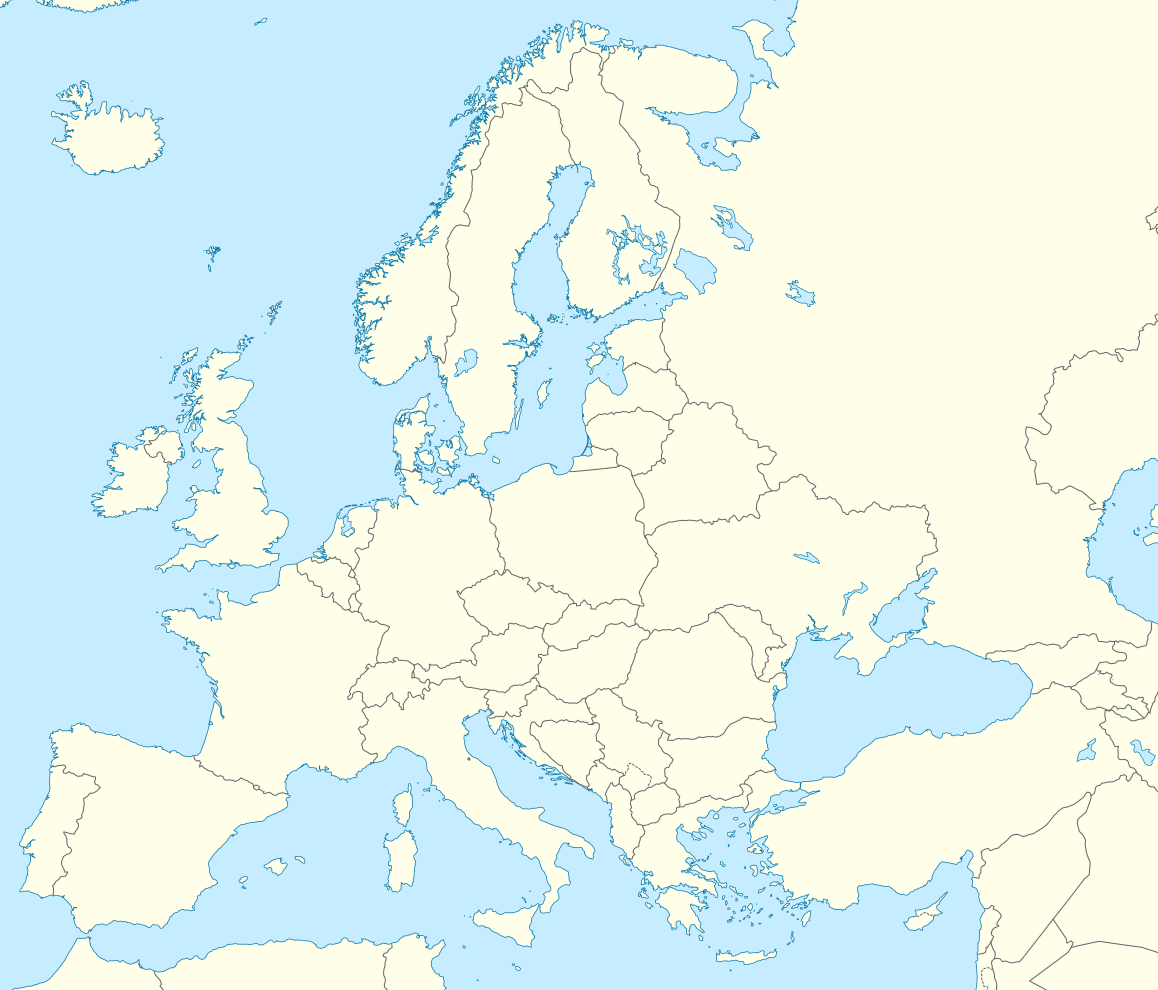
a Lada Togliatti formerly played in Kontinental Hockey League from 2008/09 to 2009/10.
An asterisk (*) denotes a franchise relocation. See the respective team articles for more information.
Players

Though now not as restrictive in maintaining an exclusively Russian composition of players and teams, Russian teams are still not allowed to sign more than five foreign players, while non-Russian teams must have at least five players from their respective country. Foreign goaltenders on Russian teams have a limit regarding total seasonal ice time.[22]
Prior to the inaugural season, several KHL teams signed several players from the NHL.[23] A dispute between the two leagues over some of these signings was supposed to have been resolved by an agreement signed on July 10, 2008, whereby each league would honor the contracts of the other, but the signing of Alexander Radulov was made public one day after the agreement (though it was actually signed two days prior to the agreement taking effect),[24] leading to an investigation by the International Ice Hockey Federation.[25] On 4 October 2010, the conflict between the leagues was settled when both signed a new agreement to honor one another's contracts.[26]
The league set up rules for the NHL lockout which lasted from 16 September 2012 to 12 January 2013. According to the special regulations, each KHL team was allowed to add up to three NHL players to its roster, among them at most one foreign player.[27] More than 40 NHL players, the majority of them Russians, played in the KHL during the lockout.
KHL players are represented by the Kontinental Hockey League Players' Trade Union.[28]
Nationalities of players
During the current season, players representing 16 nations have played at least one game in the KHL.[29] A player's nationality is for various reasons sometimes ambiguous. For the table presented below, the nationality "is determined based on the last country that the player represented in international competition. If a player has never played for a national team, usually the country of birth is chosen as the player nationality, unless there is strong evidence indicating otherwise".[30] For players born in former Soviet republics, the situation is often more complex due to dual citizenship and naturalization. Therefore, a list of players born in Ukraine gives case-by-case details for some of those players. In some cases, players can change their nationality registration with the league on a year-by-year basis, and their nationality with the league may not match that of their International Ice Hockey Federation registration. Non-Russians represent about 40% of the KHL players, and are mostly Central European, Nordic, and North American. In 2015–16, more than 950 players played in the league (see table below).
| Country (current number of teams) | Players active (2012–13)[31] |
Players active (2013–14)[32] |
Players active (2014–15)[33] |
Players active (2015–16)[34] |
|---|---|---|---|---|
| 33 | 40 | 45 | 38 | |
| 36 | 69 | 56 | 41 | |
| – | 3 | 2 | 2 | |
| 46 | 47 | 29 | 35 | |
| – | 1 | 2 | 4 | |
| 40 | 37 | 50 | 47 | |
| – | – | 1 | 1 | |
| 1 | 3 | 3 | 1 | |
| – | – | – | 1 | |
| 30 | 29 | 28 | 36 | |
| 35 | 32 | 29 | 33 | |
| 3 | 3 | 3 | 1 | |
| 540 | 573 | 594 | 634 | |
| 51 | 43 | 32 | 27 | |
| – | 2 | 4 | 4 | |
| 24 | 22 | 28 | 27 | |
| 11 | 12 | 3 | 3 | |
| 13 | 20 | 27 | 21 | |
| Total | 863 | 909 | 936 | 956 |
- a – For further information, see: List of Latvians in the KHL
- b – For further information, see: List of Ukrainians in the KHL
Trophies and awards
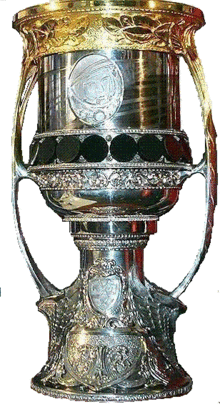
The winner of the playoff is awarded the Gagarin Cup, the KHL Champion title and the Russian Champion title, regardless of the country the club represents. The team ranked first in the standings after the regular season, i.e. the winner of the regular season, is awarded the Continental Cup[35] (Russian: Кубок Континента, Kubok Kontinenta). The winners of the conference finals are awarded the Eastern Conference Champion Cup (Russian: Кубок Победителю конференции Восток, Kubok Pobeditelyu konferentsii Vostok) and the Western Conference Champion Cup (Russian: Кубок Победителю конференции Запад, Kubok Pobeditelyu konferentsii Zapad).[36]
The KHL presents annual awards to its most successful players. The KHL also awards the Opening Cup annually to the winner of the first game between the Gagarin Cup winner and the runner-up of the previous season. On September 10, 2011, three days after the 2011 Lokomotiv Yaroslavl air disaster, the KHL head office decided to honor the deceased in the 2011 Opening Cup.[37]
Seasons overview
*: In the first season, Salavat Yulaev Ufa was the winner of the regular season, but the Continental Cup was not yet awarded.
| Season | Opening Cup Winner | Nadezhda Cup Winner | Gold Stick Award (MVP) |
|---|---|---|---|
| 2008–09 | Salavat Yulaev Ufa | Nadezhda Cup not yet introduced | Danis Zaripov |
| 2009–10 | Ak Bars Kazan | Alexander Radulov | |
| 2010–11 | Dynamo Moscow | Alexander Radulov | |
| 2011–12 | Salavat Yulaev Ufa | Alexander Radulov | |
| 2012–13 | Dynamo Moscow | Dinamo Riga | Sergei Mozyakin |
| 2013–14 | Dynamo Moscow | Avangard Omsk | Sergei Mozyakin |
| 2014–15 | Metallurg Magnitogorsk | Cancelled due to economic reasons | Alexander Radulov |
| 2015–16 | CSKA Moscow | Not contested | Sergei Mozyakin |
Statistics
Single season records
|
Regular season[38]
|
Playoffs[38]
|
Career records
|
Regular season[38]
|
Playoffs[38]
|
All-time team records
Since its foundation in 2008, 34 different clubs have played in the KHL, and 30 of them have at least once qualified for the playoffs. Of the current 28 teams, only two have not yet played in the playoffs. The table gives the final regular-season ranks for all teams, with the playoff performance encoded in colors. The teams are ordered by their best championship results.
|
[a]: Includes record of Dynamo Moscow before the merger with HC MVD in 2010
[b]: Did not participate in the 2011–12 season due to the deadly air disaster on September 7, 2011, that killed the entire team
Attendance statistics
Total and average attendance in seasons.[39][40][41][42][43]
| Season | Total Attendance | Average Attendance |
|---|---|---|
| 2008–09 | 3,883,947 | 5,298 |
| 2009–10[44] | 4,219,305 | 5,474 |
| 2010–11 | 4,288,666 | 5,785 |
| 2011–12[45] | 4,321,518 | 5,891 |
| 2012–13 | 4,775,366 | 6,106 |
| 2013–14 | 4,596,836 | 6,081 |
| 2014–15 | 5,395,035 | 6,422 |
All-Star Game
The Kontinental Hockey League All-Star Game is an exhibition game held annually in the midway point (usually January or February) of the season, with the league's star players playing against each other. Previously played Russian players versus the "rest of the world", now it is Eastern versus Western Conference.
See also
- Ice Hockey Federation of Russia
- Russian Elite Hockey Scoring Champion
- Russian Elite Hockey Goal Scoring Champion
- List of current KHL team rosters
| Preceded by Russian Superleague |
Kontinental Hockey League 2008—present |
Succeeded by none |
References
- ↑ Новый игровой ролик КХЛ "Пробка" (in Russian). khl.ru. Retrieved 2010-08-16.
- ↑ "Crossing the Atlantic". khl.ru. 2010-04-20.
- ↑ "Kontinental Hockey League And TV Channel Sport Ratified An Agreement On KHL Championship Games Broadcast In 2009/2010 Season". en.khl.ru. Archived from the original on July 24, 2011. Retrieved 25 August 2009.
- ↑ "Kontinental Hockey League Signed An Agreement With Viasat". khl.ru. Archived from the original on May 13, 2009. Retrieved 2009-07-28.
- ↑ "Jágr a KHL budou v televizi. Práva koupil Nova sport". Týden.cz. Retrieved 2009-07-23.
- ↑ "KHL Creates Hockey Premier League". March 22, 2016. Retrieved May 6, 2016.
- ↑ "World of difference for KHL?". iihf.com. 2012-05-07. Retrieved 2014-06-14.
- ↑ "Ranking the Top Ten Hockey Leagues". The Hockey Writers. 10 January 2015.
- ↑ "About the KHL". khl.ru.
- ↑ "Day of Remembrance in honor of Lokomotiv". 2013-09-07. Archived from the original on February 22, 2014.
- ↑ "Lev from Slovakia to Prague". IIHF.com. 2012-03-30.
- ↑ "Medveščak to join the league from 2013–14 season". khl.ru. 2013-04-29.
- ↑ "Welcome, Jokerit and Sochi; welcome back, Lada". 2014-04-30. Retrieved 2014-05-03.
- ↑ "Donbass to miss 2014–15 season". 2014-06-19. Retrieved 2014-06-19.
- ↑ "Naděje vyhasla. Lev Praha definitivně končí v KHL". 2014-07-01. Retrieved 2014-07-01.
- ↑ "У министра конструктивная позиция по легионерам". 2014-04-22. Retrieved 2014-05-10.
- ↑ League confirms format for 2015–16 season
- ↑ KHL (2016-06-25). "It's Official! Kunlun Red Star joins the KHL". en.KHL.ru. Retrieved 2016-06-26.
- ↑ "League confirms format for 2015–16 season". 17 June 2015. Retrieved 17 April 2016.
- ↑ "KHL Championship – Russian Ice Hockey Championship 2012/2013. Stage 2 Guidelines" (PDF). khl.ru. 2012-06-27.
- ↑ "Cup of Hope". khl.ru. 22 January 2013.
- ↑ "Навстречу Федерации, во имя Сочи". khl.ru. 2012-04-11.
- ↑ "404". TSN. Retrieved 13 May 2015.
- ↑ "Sports News & latest headlines from AOL". AOL.com. Retrieved 13 May 2015.
- ↑ Predator inks debatable deal – iihf.com
- ↑ "NHL signs agreement with KHL". ESPN.com. 2010-10-04. Retrieved 2010-10-05.
- ↑ "Door opens for NHL men". khl.ru. 2012-09-17.
- ↑ "Kontinental Hockey League Players' Trade Union" (in Russian). Kontinental Hockey League. Retrieved 20 December 2011.
- ↑ "KHL Totals by Nationality – 2013–14 Stats". quanthockey.com.
- ↑ "QuantHockey FAQ: How is player nationality determined?". quanthockey.com.
- ↑ 2012–13 KHL season, Quanthockey, Retrieved 24 April 2015
- ↑ 2013–14 KHL season, Quanthockey, Retrieved 24 April 2015
- ↑ 2014–15 KHL season, Quanthockey, Retrieved 24 April 2015
- ↑ 2015–16 KHL season, Quanthockey, Retrieved 28 April 2016
- ↑ "Ufa's first trophy". khl.ru. Retrieved 5 March 2010.
- ↑ "Новые трофеи Лиги". khl.ru. Retrieved 4 March 2010.
- ↑ "Официальное заявление КХЛ : Континентальная Хоккейная Лига (КХЛ)". Retrieved 13 May 2015.
- 1 2 3 4 "Kontinental Hockey League Records".
- ↑ Attendance in Europe and health of the fan culture 10/11
- ↑ Regular-Season average attendance Europe & Asia 2011–2012
- ↑ Regular-Season average league attendance Europe & Asia 2012–2013
- ↑ Attendance KHL 2013/14
- ↑ KHL attendance stats 2014–15
- ↑ "Attendance 2009–2010". Retrieved 13 May 2015.
- ↑ Regular-Season average attendance Europe & Asia 2011–2012
External links
- Official KHL
- Kontinental Hockey League official website
- Kontinental Hockey League official website (Russian)
- Kontinental Hockey League on Facebook
- Kontinental Hockey League on Twitter
- Kontinental Hockey League's channel on YouTube
- Third party
- KHL vs NHL exhibition games official homepage
- KHL news and stats from Eurohockey
- Kontinental Hockey League Players' Trade Union (Russian)

